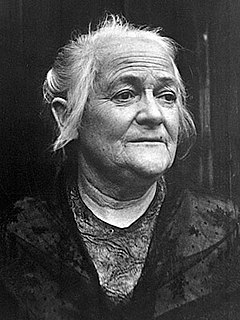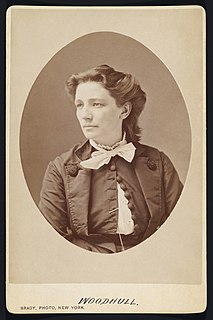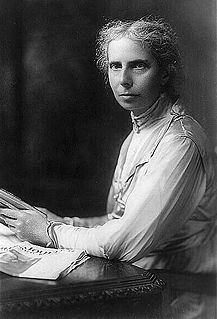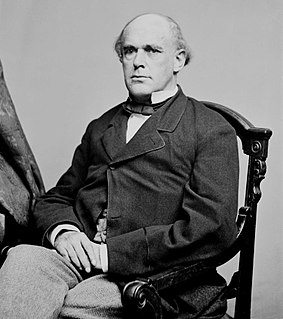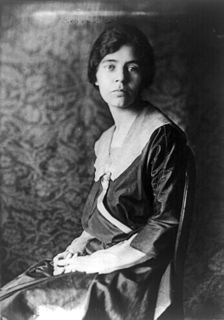A Quote by W. E. B. Du Bois
Every argument for Negro suffrage is an argument for women's suffrage.
Quote Topics
Related Quotes
The socialist parties of all countries are duty bound to fight energetically for the implementation of universal women's suffrage which is to be vigorously advocated both by agitation and by parliamentary means. When a battle for suffrage is conducted, it should only be conducted according to socialist principles, and therefore with the demand of universal suffrage for women and men.
Louis Brandeis actually changes his mind about women's suffrage because he works with these brilliant women in the women's suffrage movement like Josephine Goldmark, his sister-in-law, where he writes a Brandeis brief which convinced the court to uphold maximum hour laws for women by collecting all these facts and empirical evidence.
In my suffrage work, I learned beyond question that the news coming through the great press agencies was colored and distorted; and if this has been done on one subject, it has doubtless been done on others. A good many women, I think, learned a wholesome distrust of press reports during the suffrage struggle.
As women are taking an active part in pressing on the consideration of Congress many narrow sectarian measures, such as more rigid Sunday laws, the stopping of travel, the distribution of the mail on that day, and the introduction of the name of God into the Constitution; and as this action on the part of some women is used as an argument for the disfranchisement of all, I hope this convention will declare that the Woman Suffrage Association is opposed to all union of Church and State, and pledges itself as far as possible to maintain the secular nature of our Government.
The argument for collectivism is simple if false; it is an immediate emotional argument. The argument for individualism is subtle and sophisticated; it is an indirect rational argument. And the emotional faculties are more highly developed in most men than the rational, paradoxically or especially even in those who regard themselves as intellectuals.
it was the United States which first established general suffrage for men upon the two principles that 'taxation without representation is tyranny' and that governments to be just should 'derive their consent from the governed.' The unanswerable logic of these two principles is responsible for the extension of suffrage to men and women the world over. In the United States, however, women are still taxed without 'representation' and still live under a government to which they have given no 'consent.

